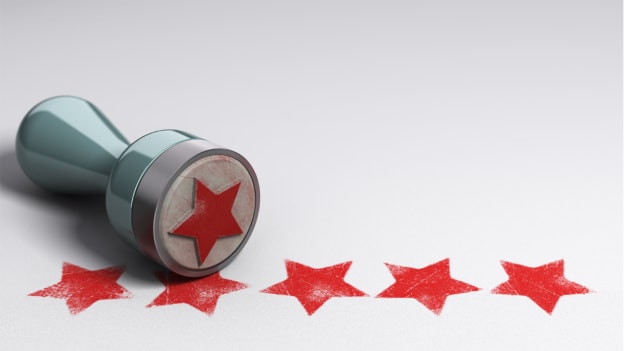Pause to succeed: Cultivating a high performing workplace

“Must possess the ability to multitask.”
“Strong multitasking skills required.”
“Be a quick multitasker.”
Sound familiar? Many variations of these are listed in the qualifications section of millions of job postings. As employers, continue to prioritize “multitasking” as a key priority for everything from entry-level jobs to senior leader roles. Employers want people to be able to shift between multiple priorities — and tackle them all successfully — without skipping a beat.
The problem? This desired job qualification runs counter to the more important goals that we hope to achieve, including greater productivity, innovation, and employee engagement. In fact, studies have demonstrated that — contrary to popular opinion —multitasking contributes up to a 40 percent decrease in productivity. Dividing one’s attention between multiple subjects leads to poor focus, and ultimately worse results.
Employers must think realistically about what is the job that needs to be done and identify more specific qualifications that will lead to the outcome they expect. Searching for employees that prioritize multi-tasking, especially in knowledge jobs, can lead to a team of anxious, impulsive, and inattentive task-switching pros. Instead employers should recruit and develop people with the ability, skills, and desire to be present at work.
Barriers to success
During office hours, workers continue to experience an overwhelming number distractions. According to Udemy, 70 percent of workers say that they experience distractions while at the workplace, with 16 percent acknowledging feeling distracted almost all the time. Chatty co-workers and noisy office environments account for 80 and 70 percent of these distractions, respectively. Other common distractions can include text messages, emails, instant messages/office communicators, phone calls, and casual coworker drop-ins.
This flood of distractions — only worsened by the fad of open-plan offices — hampers some of the most important skills we want our people to demonstrate in our rapidly changing world, including learning agility, creativity, and critical thinking. Multitasking contributes to 31 percent of missed deadlines, and consequently, a 17 percent loss in revenue. Even more disturbingly, merely sitting next to a multitasking colleague drops your own comprehension ability by 17 percent. Yes, collaboration and social interaction is important but as all good things, they are only good in moderation. In excess, they can have a significant impact on our performance and ability to get our job done.
Leaders – Pay Attention!
Although some companies have started implementing practices focusing on the creation of a more “mindful” workplace, most company leaders don’t actually acknowledge the need for mindfulness in the workplace. Many company leaders are often seemingly unaware that constant task-switching and interruptions can create befuddled, unfocused, and less self-aware employees.
For these companies, this is a missed opportunity. In addition to the impact on cognitive skills, a scattered mind is also often a stressed and anxious mind. In the UK for example, mental health is the number one cause of sick days, accounting for 70 million of the total 130 million sick days a year. Experts like Dr. Nidhi Goel, a psychiatrist at Manhattan Wellness Psychiatry in New York City, says employers who promote mindfulness practice can help battle this crisis. Dr. Goel says that mindfulness based therapies can potentially have a significant impact on people suffering from depression, anxiety, and other mental health conditions. On the contrary, the task-switching mindset of modern workplaces certainly contributes to this problem, if not outright creating it.
Mindfulness teaches us to be present, companies that don’t embrace this will be left in the past.
Often times it takes a certain difficult life event for us to consider trying something new.
Mark T. Bertolini, the CEO of health insurance giant, Aetna, embraced mindfulness techniques after a ski accident that nearly took his life. At an event on Buddhism and Business, Bertolini says that although he physically survived the accident, it later led to heavy mental health troubles, at one point almost considering taking his own life. After a long journey, the Aetna CEO finally recovered physically and mentally, attributing his success to mindfulness practice.
Upon returning to Aetna and reflecting on his journey, Bertolini became a champion for wellness in the workplace with a specific focus on mindfulness practice, offering free yoga and meditation classes to employees. The result? In a profile in the New York Times, Mr. Bertolini enthusiastically shares a plethora of statistics that measured the success of the program, including an estimated savings of $3000 per employee per year as a result of increased employee productivity.
Other forward-looking companies such as Google, Apple, and General Mills have taken steps to seize on the opportunity of cultivating mindful workplaces. In the case of General Mills, the cereal giant offers free, seven-week mindfulness and meditation program. A program in which 83 percent of participants said it optimized their productivity.
Competing financial priorities, greater competition, and constant change are the current realities almost every company. Taking a step back to think about bringing mindfulness into your organization will take some investment but the business case is there. Companies across all industries should follow the example set forth by the forward-thinking companies mentioned above, focusing on the goal of cultivating mindful, focused workplaces. This will foster an entire generation of innovative workers, instead of yet another line-up of stressed out drones















